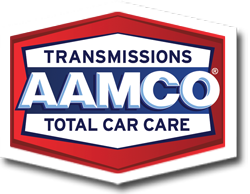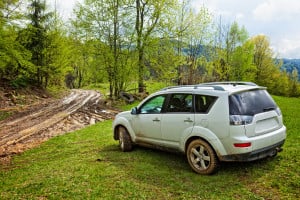5 Important Tips for SUV Owners
Owning and operating a sport utility vehicle (SUV) is a different experience than owning and operating the average car. SUV’s come with their own set of requirements, as well as potential issues, and it takes a dedicated mindset to truly understand and maintain such a vehicle at the level it requires to be safe and perform effectively. AAMCO Colorado can help keep your SUV in top running condition, from manufacturer recommended maintenance schedules to tune-ups and larger repairs, as well as 4x4 transmissions, both automatic and manual.
1. Learn the manufacturer’s maintenance schedule and stick with it.
SUV’s are expensive to own and operate, and more expensive to repair than a normal car. Proper maintenance is imperative to ensure a long life. Even with all the modern monitoring systems designed to keep track of every little drop of fluid the air pressure in your tires, the road conditions, heated seats, and even syncs with your phone! On the contrary, if you don’t follow the manufacturer’s recommended maintenance schedule, your SUV will eventually wear out, break down, and potentially cost you a lot more money than you anticipated.
The best policy is a preventative one. Rather than deal with the issue in the moment, we recommend that you prepare beforehand. That is why we suggest that you follow the preventive maintenance schedule set by your SUV manufacturer. In many modern cars, the maintenance schedule is designed and laid out for your benefit and to make sure you get the most out of your vehicle, regardless of what type of vehicle, how often you drive it, and other intangibles that come along with it. No matter what you decide, AAMCO Colorado can help ensure that your SUV in its best operating condition every time you drive it.
2. Brake Early
SUVs weigh considerably more than regular automobiles – anywhere from 4,000 to 10,000 pounds. They take more to get going, and a lot more to stop. They also need more room to come to a complete stop. When driving in wet, snowy, or slippery conditions, you really need to take into consideration your ability to stop and maintain control of the vehicle. A large vehicle does not stop faster or better because of its weight. It is quite the opposite. The increased weight actually works against you, carrying the vehicle forward with greater inertia. Having a four-wheel drive does not give you any advantages or added safety, either, when it comes to stopping on ice or other slick conditions. Check your owner’s manual or go online for specific information and recommendations on braking for your particular vehicle.
3. Remember That Everything is Bigger
Learn your SUV’s major critical parts, including ones that cars don’t have. SUV’s can come with flatbeds, dual axles, four-wheel hubs. Understand how even the usual parts are different – tires, breaks, struts, shocks, and of course, the engines are all larger. The spare tire is the same size as the other four, so be prepared to lug that monster out if you get a flat. The gas tank is larger – hopefully, you have the budget to keep it full. Those are just a few things you can expect now that you’ve upsized your transportation.
4. Learn How to Use Your SUV Correctly & Drive It Accordingly
Respect your SUV and appreciate it for what it is – a powerful vehicle with extra special capabilities. It can carry heavy loads, more passengers, can scramble over rough roads, power through tough conditions tows trailers, and much more. Just be careful to not abuse and over use these features. Like anything, your SUV has its limits and will wear out. Ultimately, this is largely dependent on how hard it is pushed on a regular basis. Therefore, we ask that you learn how to load it, learn how to maximize your efficiency, and take care of your vehicle.
Additionally, learn how to drive it, especially if you’re going to take it off-road. Be aware of ground clearance, shocks and struts ratings, tires. Because of its size, weight distribution, and height, it will perform differently than a normal car in certain situations or conditions. Cornering, for instance, will be vastly different, and you should take it slowly as you become accustomed to the vehicle.
As mentioned above, the engine is obviously larger and should be driven with due respect. Drive with caution as road conditions permit. You should not really ever have to use your SUV’s absolute full power. If you do, you are either playing with disaster or are desperately trying to avoid or evade it. In either case, expect the unexpected when all that horsepower kicks in.
5. Watch Your Gas Gauge
SUV’s use a lot more fuel than regular cars. The cylinders in their engines are larger, therefore requiring a larger amount of gas to fuel those explosions that make an internal combustion engine the wonder that it is. Keep an eye on the gas gauge so as not to be caught on empty and stuck in the middle of nowhere. Without any gas, you along with your SUV are vulnerable and you won’t be able to leave that unknown location.
Visit Us
When all else fails, we’ve got you covered. No matter what make, model, or type of SUV you drive, we’ll help you every step of the way. Come to your local AAMCO Colorado store for a complete Vehicle Courtesy Check. We’ll help you keep your SUV running reliably so you can drive with peace of mind and confidence.
If you have questions about your SUV’s road readiness, or about repairs and maintenance topics, AAMCO Colorado can help. You can also go online and use the AAMCO Colorado Ask a Mechanic feature to submit your auto repair questions. They will be answered by a real AAMCO Colorado mechanic as soon as possible.
Other Articles About Car Maintenance & Repair
What is the Difference Between AWD and 4WD?
Watch this video – see a transmission explode in slow motion.

